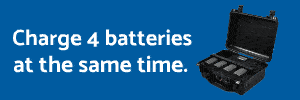It is a pretty easy process. Taken from FAA Drone Zone

www.faa.gov
There are plenty of practice tests and study material available for free online to pass the Part 107 test.
Register your drone it it weighs more than 255 grams
Fly like a professional so that you do not give drones the black eyes that other careless individuals keep doing.
First-Time Pilots
Eligibility
To become a pilot you must:
- Be at least 16 years old
- Be able to read, speak, write, and understand English
- Be in a physical and mental condition to safely fly a drone
- Pass the initial aeronautical knowledge exam
Requirements for Remote Pilot Certificate:
- Must be easily accessible by the remote pilot during all UAS operations
- Valid for 2 years. Certificate holders must pass a recurrent knowledge test every two years
Navigating the Process to Become a Drone Pilot:
Step 1: Obtain an FAA Tracking Number (FTN) by creating an
Integrated Airman Certification and Rating Application (IACRA) profile prior to registering for a knowledge test.
Step 2: Schedule an appointment with a
Knowledge Testing Center which administer initial and recurrent FAA knowledge exams. Be sure to bring a government-issued photo ID to your test.
Step 3: Pass the initial aeronautical knowledge test. Knowledge test topic areas include:
- Applicable regulations relating to small unmanned aircraft system rating privileges, limitations, and flight operation
- Airspace classification and operating requirements, and flight restrictions affecting small unmanned aircraft operation
- Aviation weather sources and effects of weather on small unmanned aircraft performance
- Small unmanned aircraft loading and performance
- Emergency procedures
- Crew resource management
- Radio communication procedures
- Determining the performance of small unmanned aircraft
- Physiological effects of drugs and alcohol
- Aeronautical decision-making and judgment
- Airport operations
- Maintenance and preflight inspection procedures
Step 4: Complete FAA Form 8710-13 for a remote pilot certificate (FAA Airman Certificate and/or Rating Application) using the electronic FAA Integrated Airman Certificate and/or Rating Application system (IACRA)*
- Register using the FAA IACRA system
- Login with username and password
- Click on "Start New Application" and 1) Application Type "Pilot", 2) Certifications "Remote Pilot", 3) Other Path Information, 4) Start Application
- Follow application prompts
- When prompted, enter the 17-digit Knowledge Test Exam ID (NOTE: it may take up to 48 hours from the test date for the knowledge test to appear in IACRA)
- Sign the application electronically and submit for processing.
Step 5: A confirmation email will be sent when an applicant has completed the TSA security background check. This email will provide instructions for printing a copy of the temporary remote pilot certificate from IACRA.
Step 6: A permanent remote pilot certificate will be sent via mail once all other FAA-internal processing is complete.
Step 7: Have your Remote Pilot Certificate available whenever you fly your UAS.



